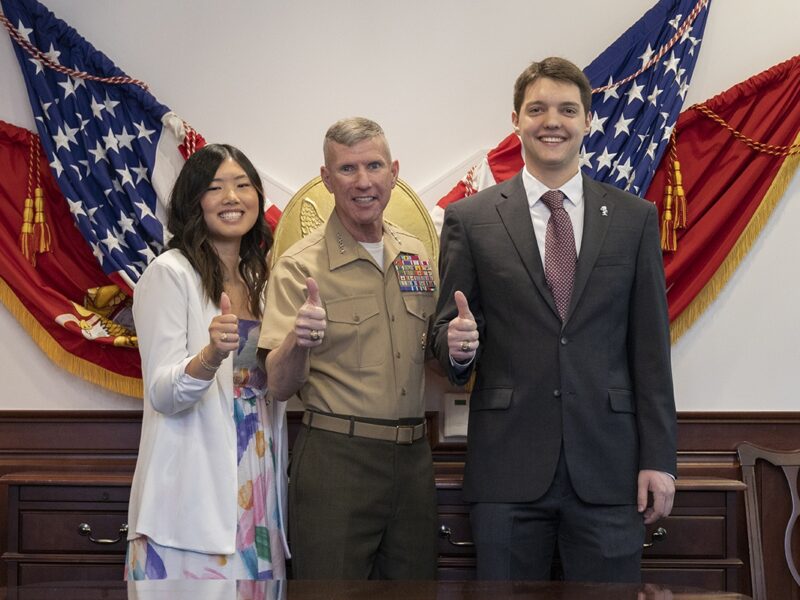Prof Delves Into Experiences Of Vets Of War On Terror

There is a wall that separates the experiences soldiers have faced abroad from the norms of American society. Hollywood sensationalism of American war efforts, which leaves soldiers and citizens with a misguided idea of the realities of combat, as well as the competitive and individualistic nature of American society presents a problem for the reintegration of veterans.
In an effort to tear down that wall, Marian Eide, associate professor of English at Texas A&M University, is writing her latest book, After Combat: American Soldiers Return from the Millennial Wars, a compilation of stories of veterans who fought in Iraq and Afghanistan.
She was inspired by a discussion on the book Lethal Warriors: When the New Band of Brothers Came Home, hosted by the Common Ground Reading Initiative in 2011. The guest speaker and professor of military science, Col. Michael L. Gibler, was critical with the way Post-Traumatic Stress Disorder (PTSD) was sensationalized in the book.
“If you don’t like Philipps’s story, why don’t you write the story?’” Eide wondered.
Now collaborating with Gibler, Eide has been interviewing and compiling stories from veterans for the past four years.
“We had to create a place where soldiers could talk about these things without attribution—quarrels with the military, acts of war that were painful for them, and even just ordinary stuff, too,” Eide said.
She said some of their findings might spark controversy, such as the conclusion that, although PTSD is a real condition and is underserviced, other issues affecting solders are often misdiagnosed as PTSD. For example, Eide said, the suicide epidemic among veterans may not be entirely caused by PTSD, but “good old-fashioned existential alienation.”
Continue reading on the College of Liberal Arts site.
This article originally appeared in the Texas A&M College of Liberal Arts website.





